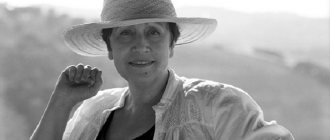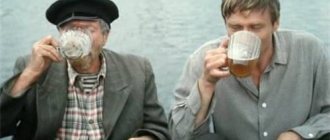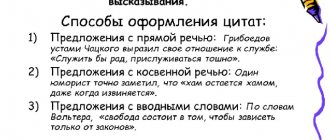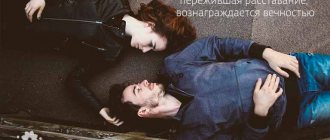Pedagogical classics for the present and future: Maria Montessori
Quote
“We have a problem - adults are the center of attention of civilization. If the authorities shift their focus to children, to the soul of a child, we can create a peaceful world. Education is the weapon of peace.”
Maria Montessori
Maria Montessori (August 31, 1870 - May 6, 1952) - Italian doctor, teacher, scientist, philosopher, humanist...
Thanks to her merits, a portrait of Maria Montessori was adorned before the introduction of the euro... (However, this is not the only precedent in the world for printing a portrait of a teacher on money. Details here) Why did this name attract me to complete the second part of the series “Pedagogical Classics for the Present and the Future”? 1. because it is named among the names of 4 teachers who determined the way of pedagogical thinking in the twentieth century according to UNESCO; 2. because the gender monotony of the series of materials “Pedagogical classics for the present and future” seemed unfair; 3. because Boris Yarmakhov’s post Google + Maria = ? leads us to the conclusion that the popular Google+ network is based on the Montessori method “Circle Time” and also reports that the creators of this social network, Sergey Brin and Larry Page, attended a kindergarten that worked according to the Montessori system in their early childhood; 4. because there is a hypothetical opportunity to visit a development center in Novosibirsk, working according to the Montessori system, to see the theory in practice (alas, this argument was not realized...) My first detailed acquaintance with the life of Maria Montessori took place thanks to the film from the BBC series: Remarkable Women XX century. Maria Montessori The first woman doctor in Italy, the founder of her pedagogical system, the popularizer of educational ideas, the main value of which is freedom: this is, perhaps, the most important thing about Maria Montessori. Details will only highlight the essence: dictators in power (Mussolini, Hitler) prohibited its system, since freedom was not at all what they needed in youth and children; finding herself in India during the war, she was able to convince Mahatma Gandhi of the usefulness of her system, as a result - the largest school in the world, The City Montessori School, is located in this country. (47 thousand students!, almost 4 thousand teachers and school staff!) In 2013, the centenary of Montessori schools in Russia was celebrated. And back in 1910, the daughter of Leo Tolstoy, Tatyana Sukhotina-Tolstaya, visited the Maria Montessori Children's Home. She saw the Montessori school as the embodiment of her father's ideas. By the way, Montessori refers to Tolstoy in his works. At the origins of Montessori schools in our country was Yulia Ivanovna Fausek (1863-1943), a Russian teacher in the field of preschool education and primary education. Through her efforts, Montessorian kindergartens, opened at the beginning of the twentieth century, survived the First World War, the Revolution and the Civil War, but did not survive the ideological pressure of the new Soviet government. In her book “A Month in Rome in Maria Montessori’s Children’s Homes” (1914), Yulia Ivanovna described her impressions of the Montessori method, which she observed in Rome. Her statement conveys the significance of this trip:
Quote
“Whoever saw Maria Montessori once will never forget her, and whoever heard her heartfelt words, spoken in a beautiful harmonious voice, about raising small children, in his soul these words will sound like the testament of a truly talented person.”
In Yulia Fausek's kindergarten Yu.I. Fausek spent almost 30 years working in the Montessori system in Russia. Get acquainted with the progress of classes. her observations and results of her work can be found, for example, in her book “Teaching literacy and speech development according to the Montessori system.” The growing interest in the Montessori system and its spread throughout Russia led to the fact that in 1926, at a meeting of the scientific and pedagogical section of the State Academic Council, in the community of venerable teachers and educational organizers, the question was decided whether it was possible to build all preschool institutions in the USSR according to Montessori system. As a result of the controversy, a resolution was adopted that essentially put an end to any widespread study and dissemination of the Montessori system, since in a number of parameters (lack of collective education, connection with life, with socially useful work) it was completely at odds with the basic postulates of the Unified Labor School RSFSR, with official pedagogical guidelines and, what was perhaps most intolerant, with ideological dogmas. Therefore, it was prescribed to limit ourselves to only experimental work in one or two kindergartens. This activity continued until the end of the 20s. and continued in Leningrad under the leadership of the same tireless Yu. I. Fausek. In 1928, the Montessori system was completely banned in the USSR, and the “grass of oblivion” closed over it for many 60 years. Only in the early 90s. In the 20th century, Russian teachers, in search of ways to humanize the upbringing and education of younger generations, create optimal conditions for their growth based on the free development and self-realization of the individual, again turned to the legacy of M. Montessori. Considerable credit for this goes to Elena Aleksandrovna Hiltunen , Montessori teacher, expert at the Association of Montessori Teachers of Russia, author of the books “Practical Montessori Pedagogy”, “Squatting Lessons”. What attracted and has attracted so many years in the ideas and methodological developments of M. Montessori? First of all, the genuine humanism of the educational systems, the appeal to the nature of the child, the absence of any authoritarianism. Within the framework determined by the teacher, the child could choose work that he liked and corresponded to his internal interests. He exercised his senses freely and spontaneously, moreover, he experienced pleasure and enthusiasm from such activities, because he acted not according to someone’s orders, but according to his own desire. Another dominant feature of the Montessori system is the maximum possible individualization of educational activities , the use of a clearly thought-out and skillfully instrumented development program for each child, designed both for today and for many years to come, organically combining both training and education based on awakening and maintaining children's activity. By improving his skills, the child gradually acquired a sense of independence and confidence. At the same time, his love for learning awakened and motives for intense independent cognitive activity were formed. A prepared environment is an essential element of Montessori pedagogy. Without it, it cannot function as a system. A prepared environment gives the child the opportunity to gradually, step by step, free himself from the care of an adult and become independent from him. Therefore, according to Montessori, the environment surrounding the child must correspond to him. An important innovation of M. Montessori was the destruction of the traditional classroom-lesson system and the creation of an original educational process for children from 3 to 12 years old, built on the recognition of each student’s right to significant autonomy and independence, to their own pace of work and specific ways of acquiring knowledge. It is no coincidence that the motto of the Montessori school is the words: “Help me do it myself . This was achieved through the implementation of a very broad educational program in Montessori schools, which is not a program in our usual sense of the word. Rather, it is a determination of the strategy and tactics of children’s activities. Having left the classroom-lesson system, M. Montessori decisively changed the appearance of the premises in which children studied. She joked that she had found two hundred and sixty-one, in addition to the two hundred and sixty designs for school desks already available, to throw them all away. Light portable tables, small chairs and armchairs were installed in the “Children's House”, so that even a three-year-old child could easily rearrange them according to his needs. At the same time, small rugs appeared, which children spread on the floor and, lying or sitting on them, studied with didactic material. Read more about this here Montessori didactic material According to Montessori, children's environment should be aesthetically pleasing and elegant; she uses fragile porcelain in children's homes. Children must develop confidence in handling fragile objects and understand their value. The material is freely available, at the child’s eye level. This is in the nature of a call to action. Each type of material is available in only one copy. This should teach the child social behavior in relation to other children and take into account their needs. Children take care of their environment themselves. In this they acquire skills of independence from adults. In order for a child to teach and educate himself, he does not need to be punished or encouraged, you just need to create the necessary conditions for him in time to “throw a “coal” into the furnace of his mind.” Development zones (Montessori identifies 5 zones of child development)
Reduced: 73% of [700 by 525] - click to view full image
Procitaty.ru - all quotes in one place.
On this page you will find quotes from Maria Montessori; you will definitely need this information for your overall development.
If a child is shown hostility, he learns to fight.
***
If you are honest with a child, he learns justice.
***
If a child is often ridiculed, he learns to be timid.
***
If a child lives with a sense of security, he learns to believe.
***
If a child is often shamed, he learns to feel guilty.
***
If a child is often approved of, he learns to treat himself well.
***
If a child is often treated condescendingly, he learns to be patient.
***
If a child is often encouraged, he gains self-confidence.
***
If a child lives in an atmosphere of friendship and feels necessary, he learns to find love in this world.
***
Don't talk badly about your child - neither in front of him nor without him.
***
Concentrate on developing the good in the child, so that in the end there will be no room for the bad.
***
Be proactive in preparing your environment. Take constant careful care of her. Show the place of each developmental material and the correct ways to work with it.
***
Be ready to answer the call of a child who needs you. Always listen and respond to a child who speaks to you.
***
Respect the child who has made a mistake and can correct it now or later, but immediately and strictly stop any inappropriate use of the material or any action that threatens the safety of the child or other children.
***
Respect a child relaxing or watching others at work, or thinking about what he has done or is about to do.
***
Help those who want to work, but cannot yet choose an occupation to their liking.
***
Always use your best manners when dealing with your child and offer him the best of you and the best of what you have at your disposal.
***
A child, this new creature who has come into life, only keeps us in a state of wakefulness. He appears every morning, as if saying: “Look, this is a different life. You can live better than you live." Maria Montessori "Help me do it myself"
***
The whole life of a child is a movement towards self-improvement, towards the completion of the creation of a person within himself.
***
The idea that life goes on by itself, and in order to study it, unravel its secrets or direct its activities, it is necessary to observe and understand it without interfering - this idea, I say, is very difficult to grasp and put into practice. The teacher was taught too long to be the only active, freely acting person in the school; for too long its task has been to suppress all activity in children. Maria Montessori "Children's House. Method of scientific pedagogy"
***
Everything that is created by nature is the result of activity. Montessori M. “A Montessori child eats everything and does not bite
***
And in the gaze of a child, who discovers in himself the path to reality, the path to truth, there is more justice than in the gaze of an adult.









